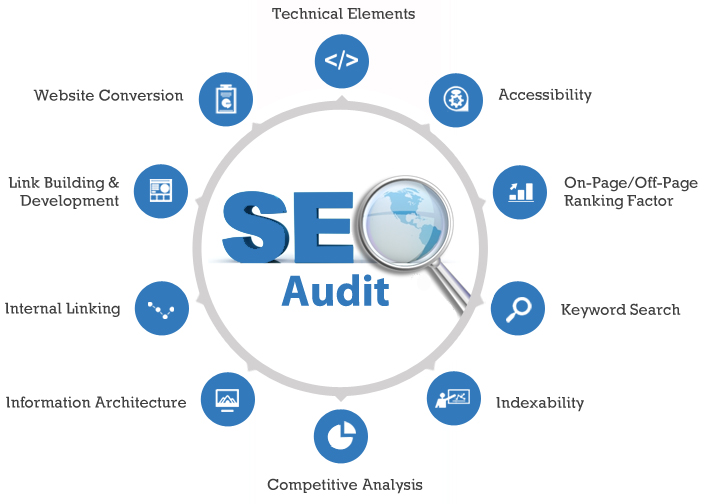SEO Guideline for Ranking Business 2025
ibizncom
November 3, 2024

Stepping into the digital business world in 2025? This SEO guideline for ranking your business is your key to standing out online, staying competitive, and building long-term visibility in search results. Here is the step-by-step full terms of search engine Optimization (SEO).
1. Understand the Basics of SEO

Before diving into specific strategies, it’s essential to understand the foundational elements of SEO. At its core, SEO is about optimizing your website to rank higher in search engine results, making it easier for potential customers to find you. SEO is broken into three primary categories:
- On-Page SEO: Content, keywords, meta tags, and internal links.
- Off-Page SEO: Backlinks, social signals, and other external factors.
- Technical SEO: Website structure, speed, mobile-friendliness, and schema markup.
Each of these plays a significant role in your site’s overall SEO health and should be integrated thoughtfully.
2. Keyword Research for 2025
Keyword research is still the backbone of SEO, but the approach has evolved. Here’s how to make the most of it in 2025:
- Focus on User Intent: Search engines are getting better at understanding what users are actually looking for, so prioritize keywords based on intent. Think about what problems or questions your ideal customers have.
- Embrace Long-Tail Keywords: Short, competitive keywords are challenging for new businesses to rank for. Use specific, long-tail keywords that match niche queries (e.g., “best eco-friendly coffee shops in NYC”).
- Utilize AI-Powered Tools: Tools like SEMrush, Ahrefs, and Google’s Keyword Planner have become more advanced, offering insights into not just keywords but also content gaps, trends, and user behavior.

3. Create High-Quality, User-Centric Content
Content remains king, but the focus should now be on depth, relevance, and engagement. Here are the keys to content success:
- Prioritize Quality Over Quantity: A few in-depth, high-quality blog posts or articles will drive more traffic and engagement than dozens of low-quality ones.
- Answer Questions and Provide Value: Think of content as a way to solve problems for your audience. This builds authority and helps your content rank better.
- Utilize Multiple Content Formats: Explore videos, podcasts, infographics, and interactive elements. Diversifying content formats appeals to different types of users and increases engagement.
4. Optimize for E-A-T (Expertise, Authority, Trustworthiness)
E-A-T is a framework Google uses to assess the quality of content, particularly for topics in the health, finance, and legal sectors. In 2025, businesses in all niches should prioritize E-A-T:
- Showcase Author Credentials: Make sure your content’s authors are clearly identified and, where possible, have relevant credentials.
- Link to Authoritative Sources: Citing reliable sources can boost your content’s credibility.
- Build Trust Through Transparency: Ensure your business information is up-to-date, and have clear contact information, privacy policies, and terms of service.

5. Focus on Mobile Optimization
Mobile traffic now accounts for over half of global internet traffic, and Google’s mobile-first indexing means that the mobile version of your site is the primary one it considers for rankings. To ensure your website is mobile-friendly:
- Use Responsive Design: Your site should look good and be easy to navigate on any device.
- Optimize for Mobile Speed: Page speed matters, especially on mobile devices. Compress images, use fast-loading formats, and reduce unnecessary code.
- Implement AMP (Accelerated Mobile Pages): For content-heavy sites, AMP can help deliver faster, mobile-friendly content.
6. Leverage Voice Search Optimization
Voice search continues to grow with smart assistants like Siri, Alexa, and Google Assistant. To capitalize on this trend:
- Use Conversational Keywords: Voice search queries tend to be more conversational and question-based. Incorporate “how-to” phrases and question formats.
- Optimize for Local Voice Search: People using voice search are often looking for local information. Make sure you’re registered with Google My Business and that your location information is accurate.

7. Build Quality Backlinks
In 2025, backlinks remain one of the most significant ranking factors. However, the focus is now on quality rather than quantity:
- Build Relationships with Industry Influencers: Guest posting, collaborations, and social media mentions can earn you valuable backlinks.
- Leverage Data and Research-Based Content: Content that includes original research or data is more likely to be shared and referenced by others.
- Monitor and Disavow Low-Quality Links: Regularly check your backlink profile and disavow any low-quality or spammy links that could harm your ranking.
8. Enhance User Experience (UX)
Google rewards websites that offer a positive user experience. Keep these elements in mind:
- Page Speed: Users expect fast-loading pages, and Google uses page speed as a ranking factor.
- Easy Navigation: Organize your website with intuitive navigation and a clear structure.
- Mobile Usability: Your website should be fully functional and easy to use on mobile devices.
9. Utilize Structured Data (Schema Markup)
Structured data (also known as schema markup) helps search engines better understand your content, potentially earning you rich snippets, which improve visibility. To use structured data effectively:
- Use Schema for Important Content: For example, add schema to products, reviews, or FAQs to enhance how your content appears in search.
- Leverage FAQ and How-To Schema: These can increase the chances of appearing in voice search results or earning additional SERP (Search Engine Results Page) real estate.

10. Prioritize Local SEO
If you have a physical location or serve a specific area, local SEO is essential:
- Set Up and Optimize Google My Business: Keep your business profile up-to-date with correct contact information, hours, and services.
- Encourage Reviews: Positive reviews improve your local search rankings and attract more customers.
- Optimize for Local Keywords: Incorporate local phrases like “near me” or city-specific keywords into your content.

11. Monitor SEO Performance and Adapt
Finally, SEO is a long-term strategy that requires constant monitoring and adapting:
- Use Analytics Tools: Google Analytics, Google Search Console, and other tools offer valuable insights into your website’s performance and user behavior.
- Keep Up with Algorithm Changes: Google releases algorithm updates frequently. Stay informed and adapt your strategies accordingly.
- A/B Test and Experiment: Regularly test new strategies and make adjustments based on data.
Final Thoughts
SEO in 2025 is about providing a seamless, valuable experience for users while adhering to search engine best practices. As a new business, investing in SEO will help you stand out in an increasingly competitive digital landscape. By focusing on user-centric content, building trust, and keeping up with the latest trends, you’ll be well on your way to climbing the search engine ranks and reaching your target audience.
Implement this SEO guide, and watch as your business gains visibility, attracts more traffic, and converts visitors into loyal customers.
Feel free to seek our professional help – https://ibizn.com/services/
Contact us at info@ibizn.com
Or book a meeting with us – https://zcal.co/ibizn/discovery

